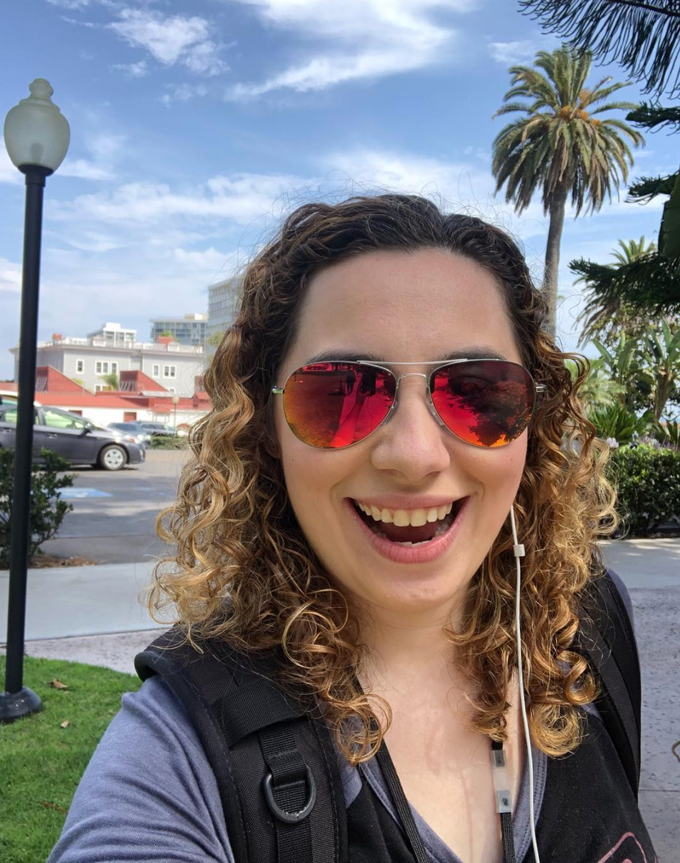John Ridley hints at a future for the Next Batman beyond Future State and beyond comic books
Tim Fox is coming to Gotham City and John Ridley says there is a plan for the Next Batman after Futute State
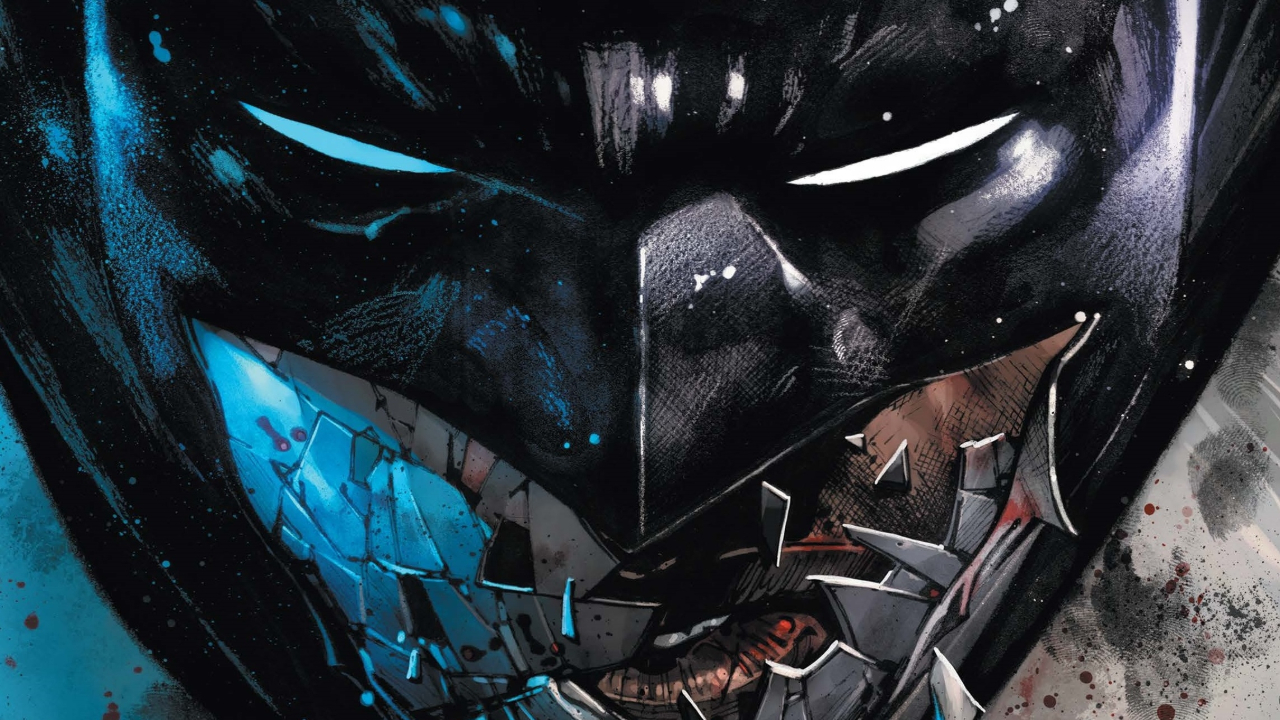
DC's two-month line-wide event, 'Future State' kicks off January 5th with a new Batman under the cowl, Tim Fox.
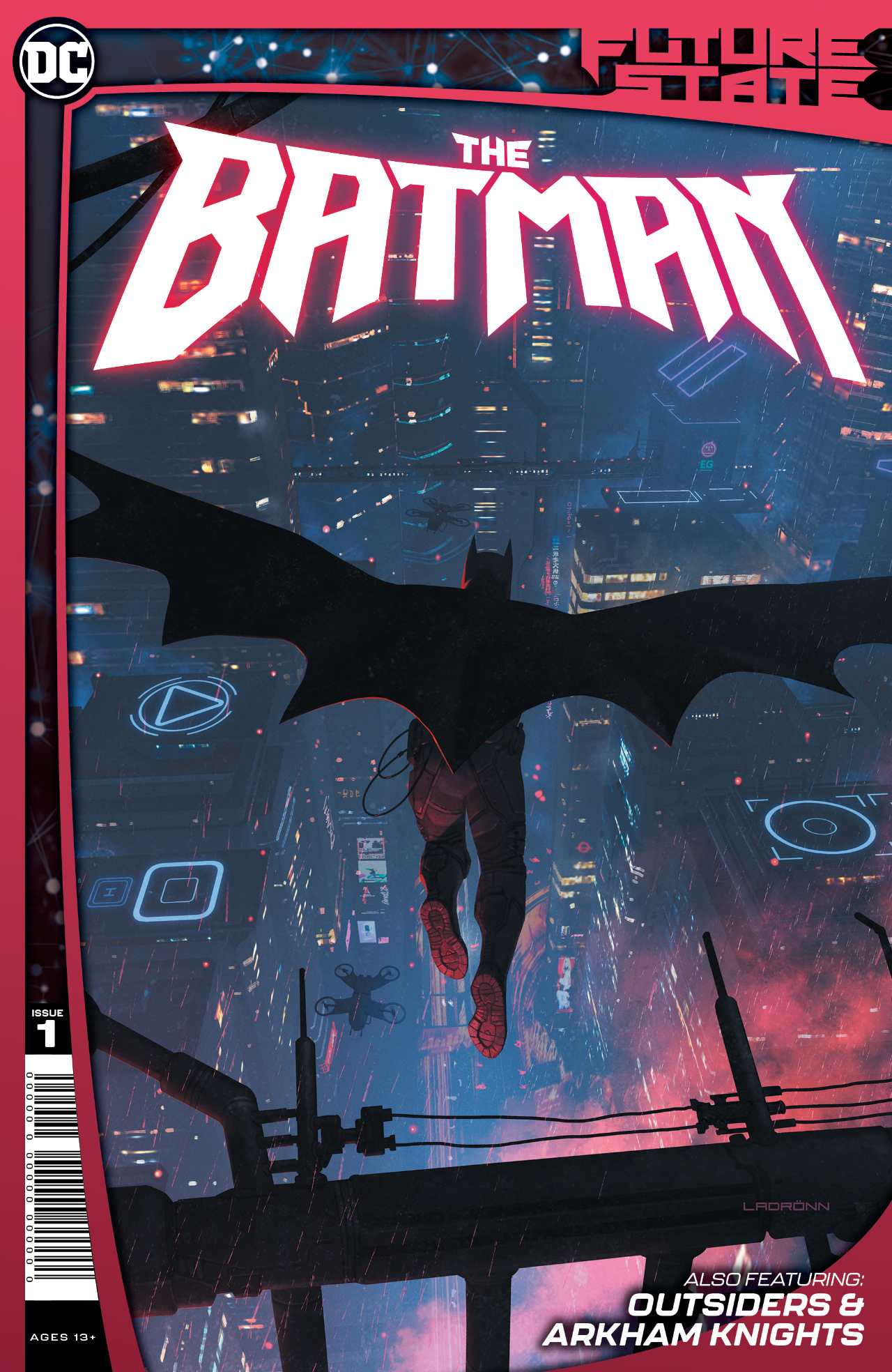
Tim made his debut appearance in 1979's Batman #313 but has only made scattered appearances since. Now, Tim returns to Gotham in a near-DC future to find the city in shambles following the events of 'A-Day.' The Fox family - including patriarch Lucious Fox is now the richest family of Gotham, there's a private law enforcement group in charge of policing 'mask' crimes, and Batman has disappeared. Where does this leave Tim – an outsider?
The Next Batman is written by 12 Years a Slave and the Other History of the DC Universe's John Ridley with illustrations by Nick Derington. Newsarama had the chance to chat with John Ridley about what fans can expect from Tim Fox's debut as the Next Batman. We discuss Tim's relationship with his family, how Next Batman will connect to Bruce Wayne's legacy as the Caped Crusader, and what type of role Tim will take following 'Future State.'
Newsarama: John, while creating the story, was Tim Fox your first choice to be the Next Batman, or were there other candidates you had in mind?
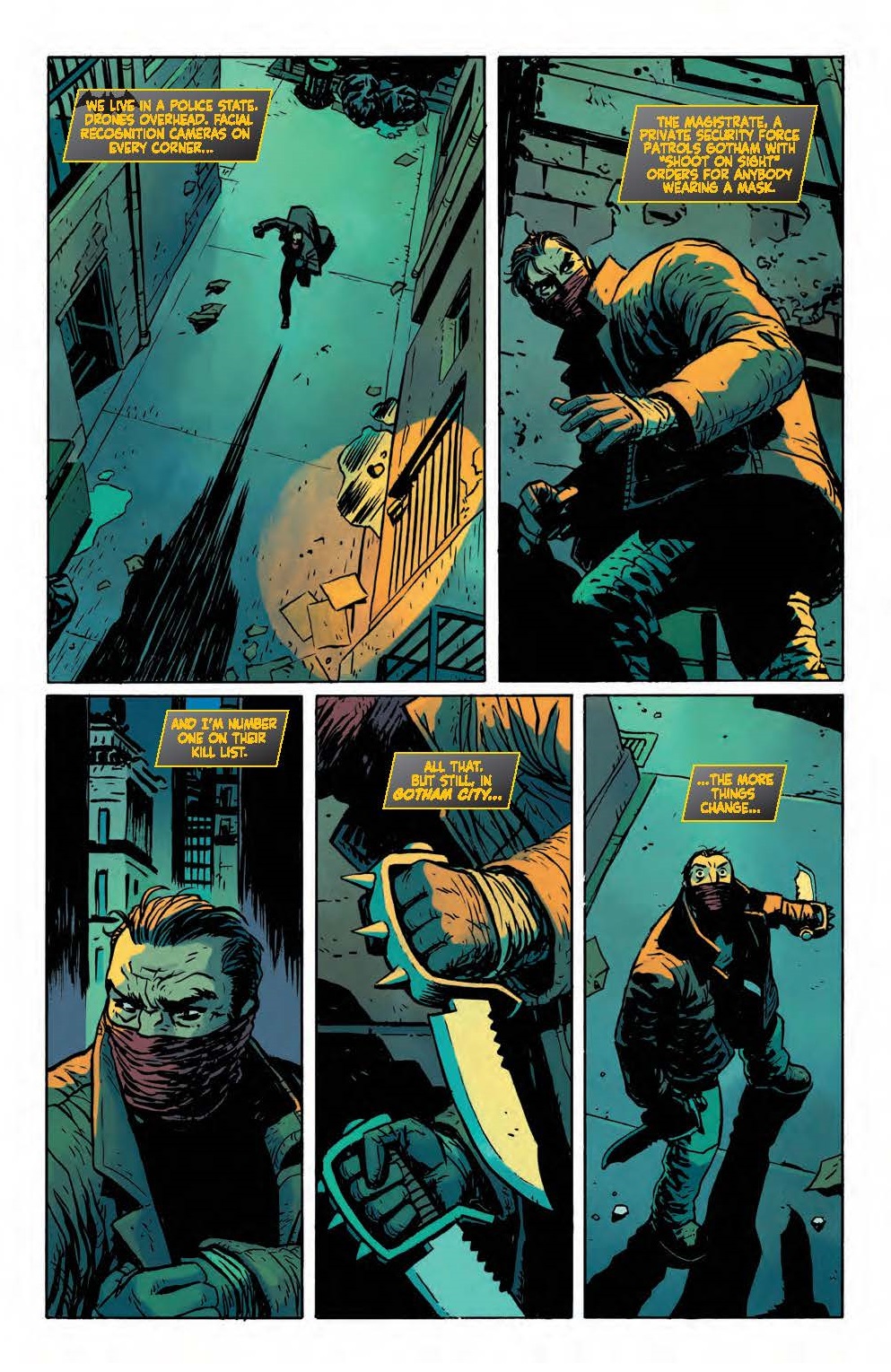
John Ridley: Tim was the first choice. When I was invited in to even start talking about Next Batman - it started out as a couple of iterations of what would have been 5g, but even absent of what the vehicle would be, whether it was 5g, whether it was 'Future State' - there was a real commitment to having Batman be represented as a person of color.
As we were talking about it, as the ideas that DC had – how they wanted to engage, even before the reckoning that we went through on race. It seems like a lifetime ago we started these conversations, but there were things that the executives really wanted to get into about perspectives, family, privilege – in ways that are not, in my opinion, and to their credit, not normally engaged in wider media.
One of the things that was really important to me was to be able to engage in these things in ways that would not have to backtrack on things that fans already knew about - other characters that would have been more obvious choices to be Batman. Ways that were very connected to a family in particular, the Fox family, which is probably one of the most prominent families, if not the most prominent family, certainly of the Gotham universe, let alone in the DC universe.
Get the best comic news, insights, opinions, analysis and more!
And then to be able to fill in a lot of blanks, and start with a character that we all could really purposely orient towards a particular narrative. So, when we looked at all of those things - Tim was just the obvious choice. In particular, Ben Abernathy, the group editor who I've worked with in the past, a great guy and a real genius editor – he really pushed for it and it just made complete sense. For me, coming in it was the only choice for us. I'm just very happy that's the choice because it just allows so much for the storytelling.
Nrama: How much (if any) crossover will there be between the story in The Next Batman and Dark Detective?
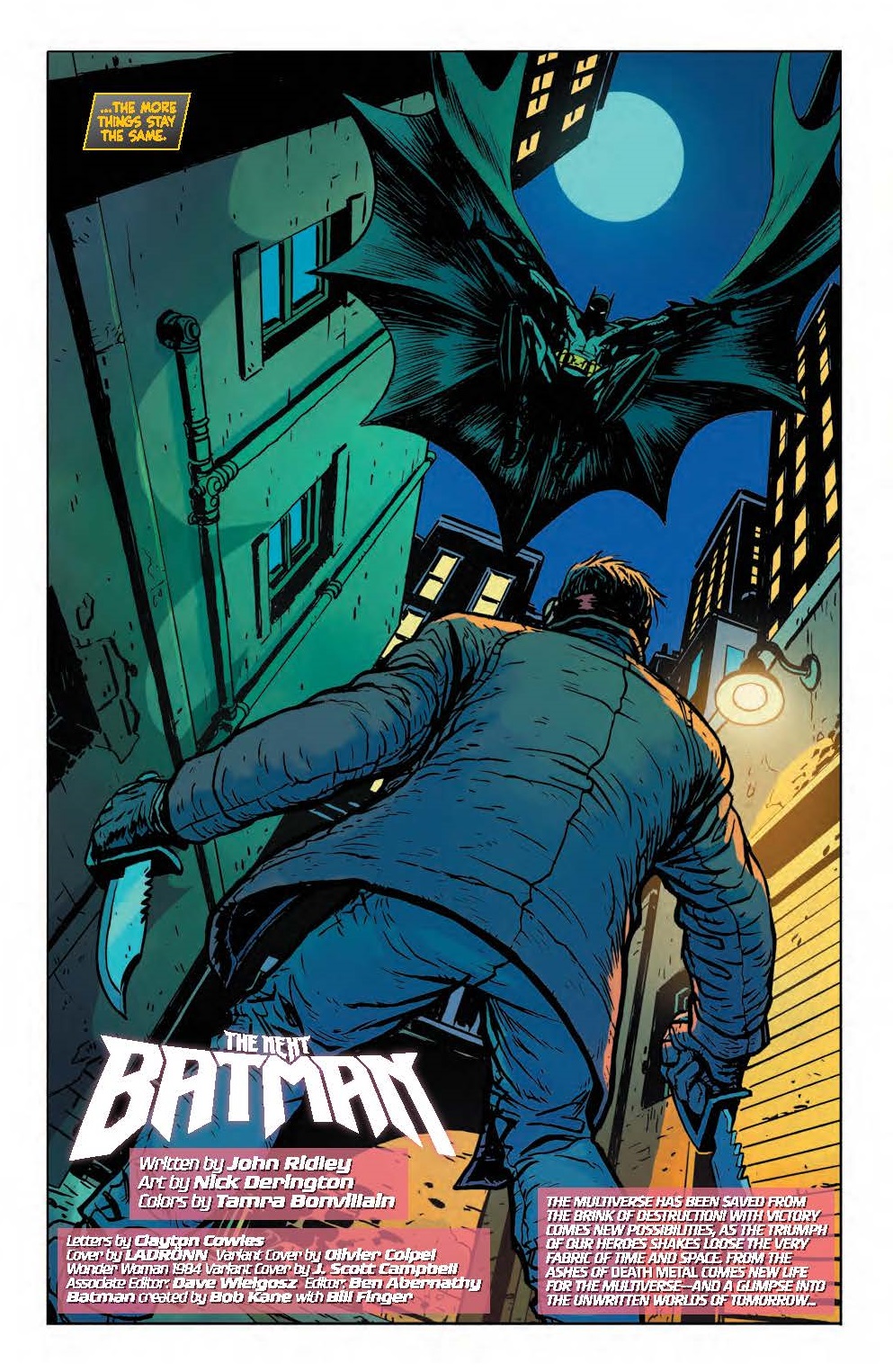
Ridley: Going into the next phase, some things I can't talk about specifically for various reasons, but I can say that there has been a long-term plan for what's going to happen. And certainly, in the early phases of the storytelling, it's going to be very much within a hyper-specific universe.
James has some very big plans that trickle down to other folks in other books. We want it to feel unified. We don't want it to feel like there's just a lot of different people operating in different spaces. I think that's good for the storytelling, the fans, and for a cohesive universe.
Then beyond that, in the Next Batman micro-verse, there are other very specific plans that have been created that are going to be implemented. Then make Tim very much his own individual, his own character, and have his own emotional velocity to his storytelling.
In the early going, very much look for a unified universe. Very much look for some very exciting things that are going to happen. On the heels of 'Joker War,' which was very successful, that idea that there's a lot of things going on in a lot of spaces, but they're not disconnected. I think that's going to be a lot of fun. But there are plans for Tim to be able to gauge in a very, very specific way.
Nrama: Piggybacking off of that, more specifically, how would you like Next Batman's adventures to continue post 'Future State'?
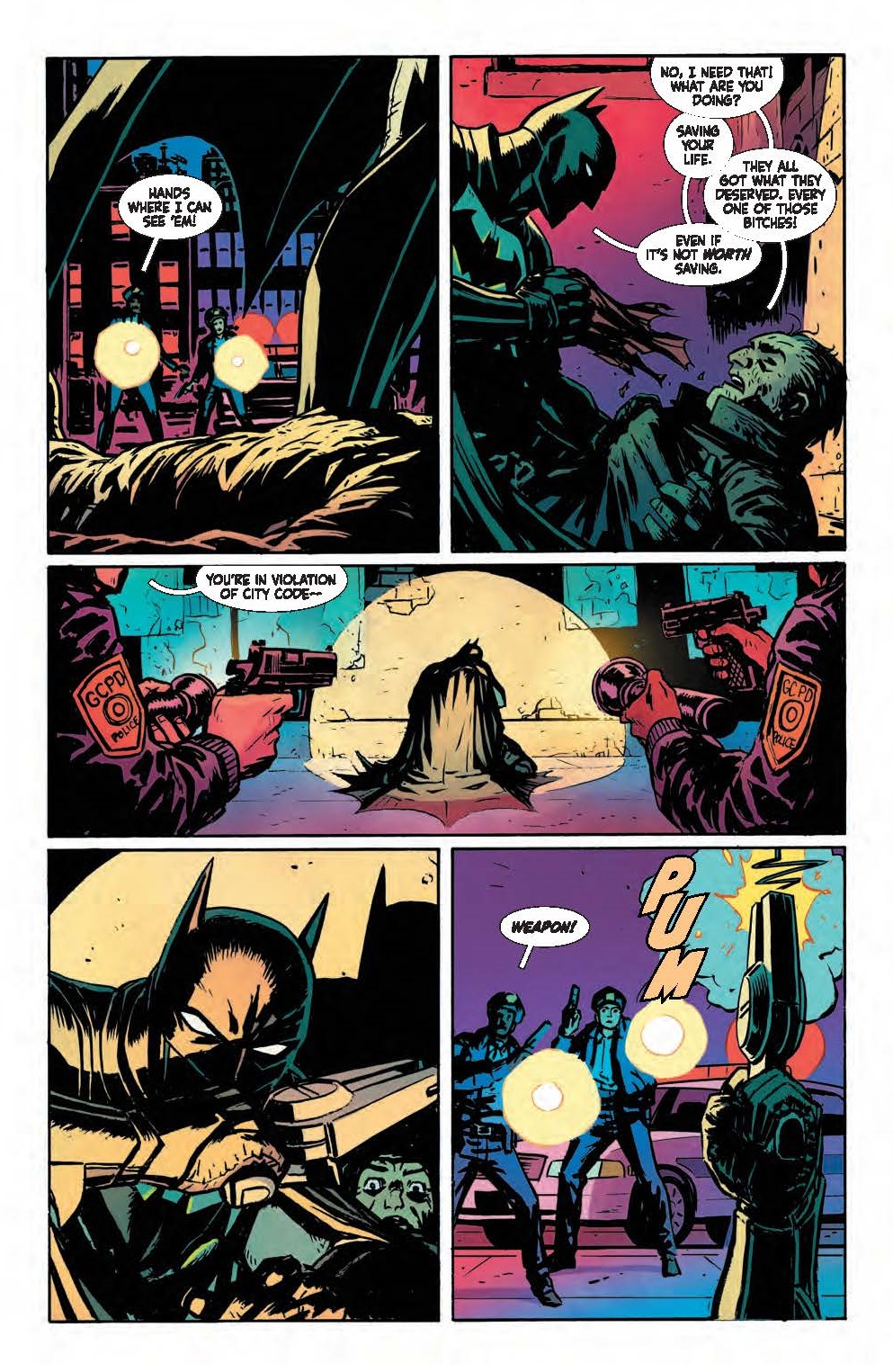
Ridley: I hope that they continue in the way that we planned for them to continue because there is a plan and it's very exciting for me. I don't mean to be arcane for the sake of being arcane. This isn't like we think it up today and it goes on the shelf tomorrow. This has already been more than a year of planning, of thought, of test-driving things, of giving them a shakedown, of scripts that existed, of scripts that exist but are no longer applicable because things have gone in a different direction. Things that we're changing now because when we look at the future - what we want to do with Tim, what we want to do with the folks around him, how we want to build a team, an infrastructure, a support system for Tim, that's going into place.
Some things are really just articulating what was going on with Tim in his absence. To me, that's the exciting thing without going back and changing things. Going back to one of the earlier questions, much like we did with the Other History of The DC Universe, taking things that were there, whether they were happenstance, whether they were things that writers put in that maybe never were fully completed because of things that went on in the industry or things that went on just in terms of editorial. Instead of ignoring those things - embracing them.
I would say more than anything, it's articulating who Tim is, where Tim has been, what his relationship with his family is. Like almost anyone when you reach a level of growth in the environment you're in, it's time to move to a new environment. That excites me very much.
Nrama: Bane is notoriously known as the villain who "broke the Bat." Is there any significance to having one of the new Batman's major adversaries being a group that models themselves after Bane?
Ridley: I have to be political in answering this question... I would say, there'll be some interesting things going on with Bane. That's about all I can say, my apologies.
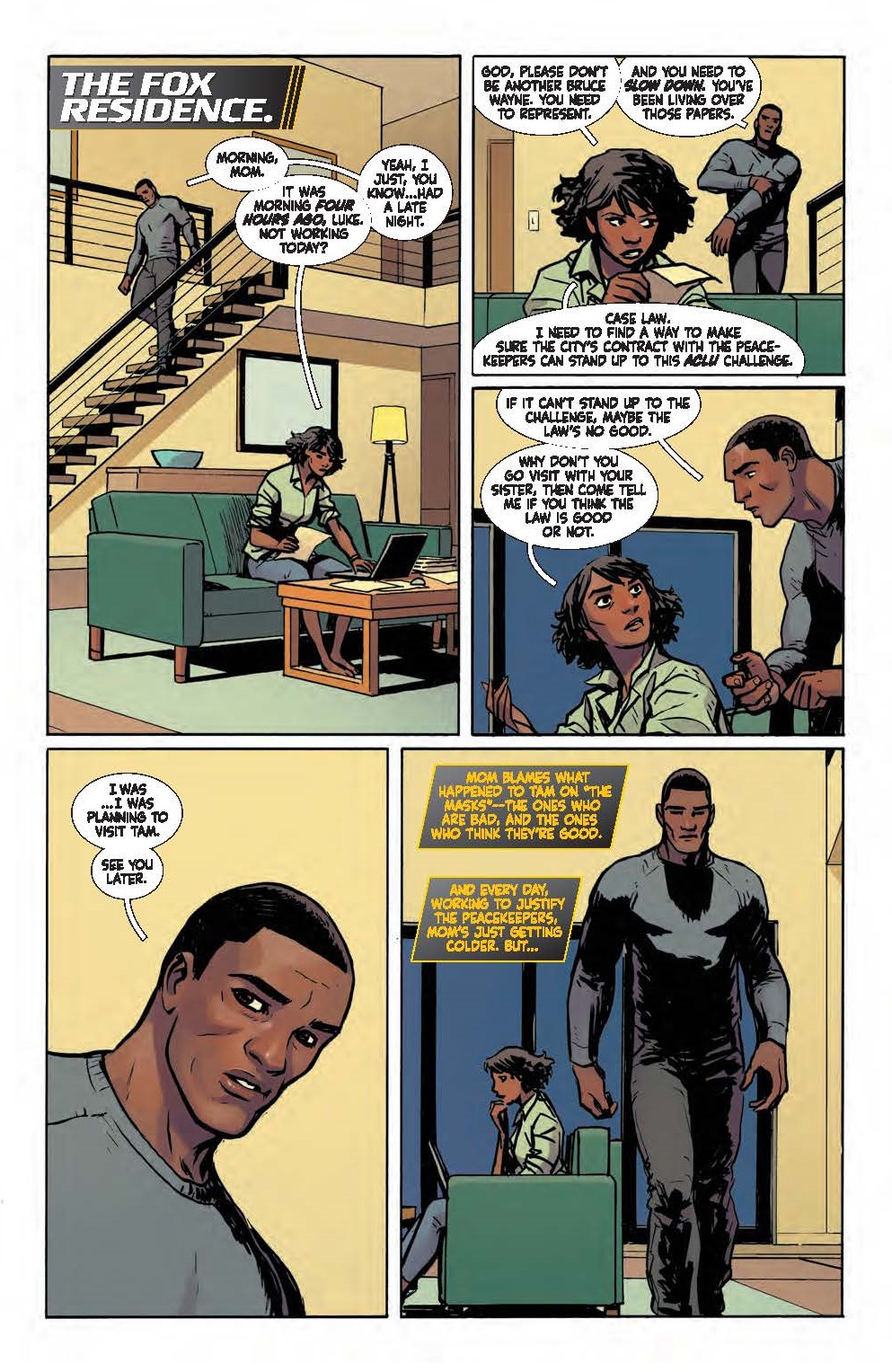
Nrama: Can you talk a bit about your relationship with Nick Derington? What was it like collaborating with him?
Ridley: It was interesting for me because, honestly, it was the first time coming into a graphic novel space where it was a new relationship. I've worked with Georges Jeanty, who has been my primary collaborator with The American Way. The American Way was obviously a bit of a comet that we did once every 10 years. But even in that, we had a rhythm, we had a partnership and it was our own thing. We could go into it like, oh, this is what we're doing.
With 'Future State' it was the beginning of what was going to be - what we hope is a very iconic character, a character that I had to land - both in text and with the visuals. Something that would have to be immediately very recognizable as Batman, but also very individual.
Even when people didn't know who was behind the cowl yet, you didn't want to just feel like it's just another iteration of somebody playing Batman for a limited time because we knew that there was just much more for Tim to do. Coming into it was interesting because it was different than what I've done before. This was not just a creator-owned series. This was something that was going to operate in DC. This was going to be something that was going to operate in Warner Media, this was something that was going to operate in the wider world.
All of it was new and all of it was truly interesting. I use that not to avoid other phrases, but it really was for the first time for me, okay, now you're operating in a system and it was a system that was built to support us and what we wanted to do in particular choices that I had. It wasn't like, oh, I have to modify myself, but you realize there were all these other elements that went into it. It really felt like this is a team effort.

All the way across the board, editorial, promotion, the things we're doing now was a system that wasn't in place or wasn't activated when we were doing The American Way. It's been a really interesting process because it was going to school and some days it was fun. Some days were a little tough. Some days it was oh, I just want to go running in the park today and go outside. There were some days where you're sitting down and going, okay, I get it now. I feel like I've learned more today and I'm in a better space today than I was yesterday. If I'm going to boil it down to a word, to me, it's just been an amazingly interesting process across the board.
Nrama: Is there something that you feel Batman as a character and perhaps as a franchise has been missing that you wanted to bring a new focus to?
Ridley: Over Batman's 80 years of history, I wouldn't say there's anything missing. He's done everything. He's played in every space. For me, I wouldn't say it's missing, but I would really want to lean into, whether it was Batman, whether it was any of the Trinity at DC or almost anywhere - is trying wherever we can to move away from a sense of false jeopardy.
When I say that, I mean, look Batman's been around forever, Superman, Wonder Woman. You go to the other comic book universes their heroes have been around for a long time. And there's a reason for that: A.) people love these characters; and B.) these characters have an amazing value - a value of readership, fans, and then a real monetary value.
So, there's a level these characters have to endure. They have to be there for all of us. I love these characters and I love seeing what happens to them. 'Joker War' for me was an opportunity to really get back into Batman in a way I hadn't done in years. Irrespective of whether I was going to write Batman or not. It was just like epic, epic, epic, and characters evolve.
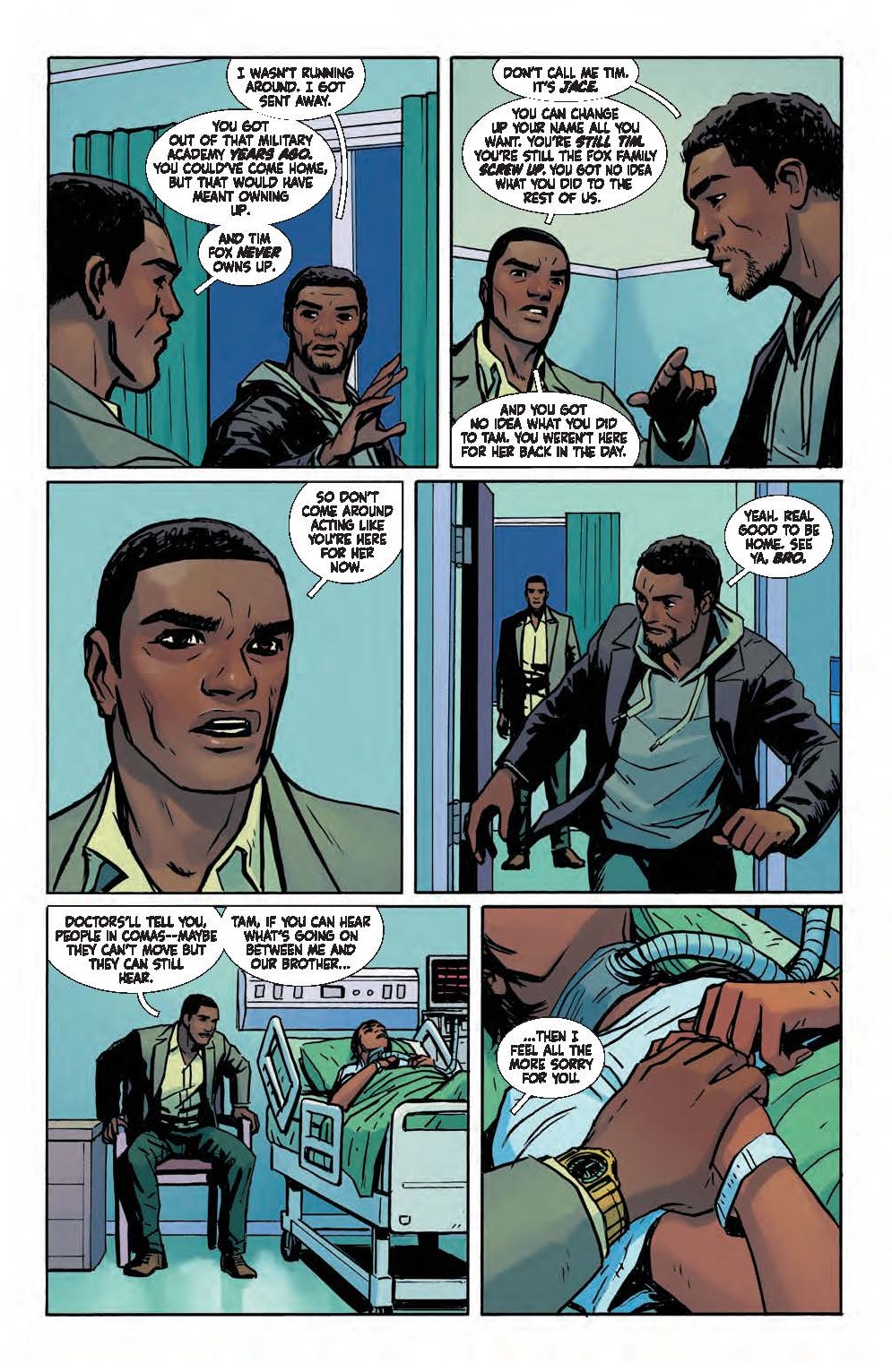
Like Harley's evolved. New characters step in. Punchline stepped in and became a fan favorite almost instantly. But at the end of it, oftentimes things happen and there are these resets where you have to reboot, you've got to dial down Superman's powers because they've become too big. We reset characters because we enter new ages, but within that, these characters remain extant.
And, for me, there's just a level of can we add in elements where the jeopardy becomes real and characters don't necessarily endure? And I think if anything, the year that we've gone through, as hard as it's been, as difficult as it's been, I hope for most people it's a reminder that it's not guaranteed. You really got to appreciate the people in your spheres. Hopefully, you appreciate everybody, even people you don't meet, but that in so many ways, just think about the people that we've lost this year, think about the things that have changed, think about just how life progresses whether we want to or not. Whether we agree with that progression or not - it just happens.
So, for me, I don't look at it and go, well, 'Batman's never done this.' It's not even like he's never lost. His whole narrative is built on the loss of his parents, His whole narrative is built on the loss of his parents, and I really wanted to get into things that feel connected. In some ways to a world that is recognizable, which is not to say just replicate what's going on in the world, because so much of comic lore is to try to escape those things. But look, Batman's parents back in the great depression, wealthy people being murdered was connected to something that was very real.
Superman, as fantastic as the story is, it's still the classic immigrant story that's connected to reality for immigrant families who just wanted to fit in and be thought of as being part of the American fabric. Wonder Woman's story, even though it was originated by a man, a woman coming from outside during a war showing men how to be better was very connected to a reality.
So, for me, those are the things I want to lean into. It's certainly not things that didn't exist specifically for Batman, for other characters, but you had to have the opportunity to lean into things that feel fundamental, things that feel grounded, jeopardy that feels real, and loss that exists. That's very exciting to me, and I think the vehicle of a Tim Fox, a Batman, and a hero is just an amazing vehicle for those things.
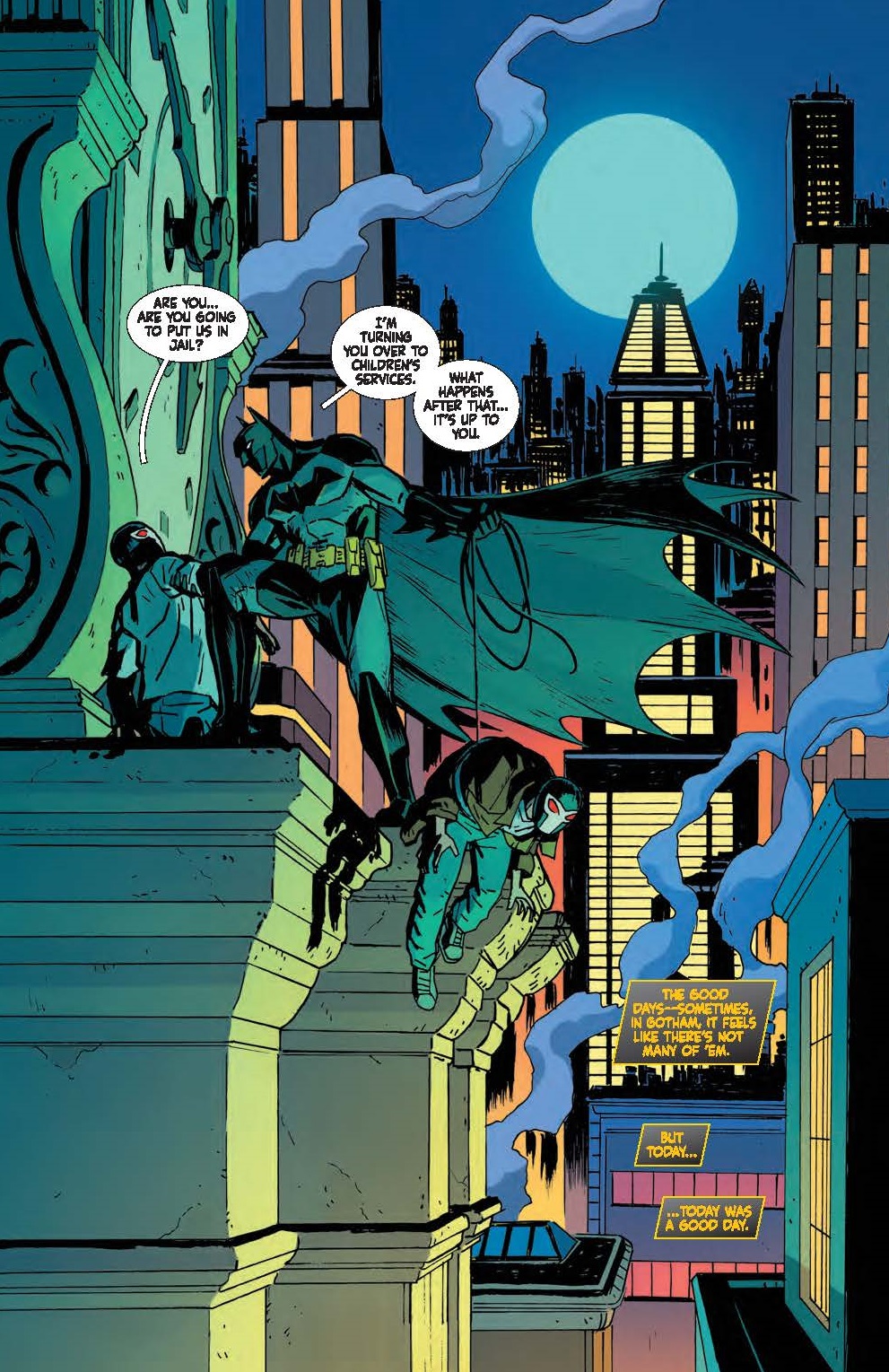
Nrama: There are a few other stories from other creators within the Next Batman book – 'Batgirls,' 'The Outsiders,' etc. Were there any opportunities to tie into these stories or other Bat 'Future State' titles?
Ridley: Not for me in the stories that are going to be also in the Future State Next Batman. Those were written in a bit of a silo. We were all kind of siloed a little bit, not necessarily intentionally, but they were. But going forward, I think you're going to see a hybrid integration of what's going on in the bat universe.
Nrama: The city of Gotham is sometimes considered a character itself - one of the most important characters in the Batman mythos. Can you talk a bit about your version of Gotham, and what the struggles the city is currently going through in your title?
Ridley: Without being overly specific, you're absolutely right. Gotham is a character. I think it's such a unique city because you can't look at it and say well, it's New York, it's L.A., it's Chicago. It represents any major urban area and all the challenges that go with it - all kinds of crime, high and low, all kinds of people, all kinds of neighborhoods, all kinds of perspectives, people on the right side of the law who view what implementation of the law means, and certainly all kinds of people on the wrong side of the law, who want to take advantage of everything that's in the city, take advantage of people and opportunities.
None of that is going away. If anything, I want to lean into the human vastness of Gotham City. You look at any major metropolitan area and they're just difficulties of policing those cities, and I don't mean the political difficulties of it. I mean just how many officers per capita, per square mile. How do the beat cops see things differently than the detectives than the political administration?

Going into these series, 'Joker War' hasn't gone away. There are elements of memory within some of these stories. There are going to be changes in the hierarchical structure of the Gotham City police, of the administrations - all kinds of things going on with Bat people.
To me, it's taking those elements, personifying the vastness of Gotham City, the personification of that vastness. And how this in particular affects Tim Fox, who’s been away from the city, his family, been away from everything that’s going on. He's arriving back to Gotham with a hyper-focused agenda, with a family that’s gone from being exceptionally prominent to one of the richest families on the planet.
How does that all play out in a post-war Gotham when the police have been decimated, when officers have been killed, when people see that war - something that went on maybe outside of him personally. It's something that happens to Gotham, but it happens to other people, it happens over there. It happens in that neighborhood. How does all of that affect the city? The city remains a huge character and through personification is going to be a very huge character in Next Batman.
Nrama: I'm curious about the timing of the release. How did this become a part of 'Future State' specifically as opposed to a standalone book or a maxi-series?
Ridley: Who's to say it isn't part of many of those things?
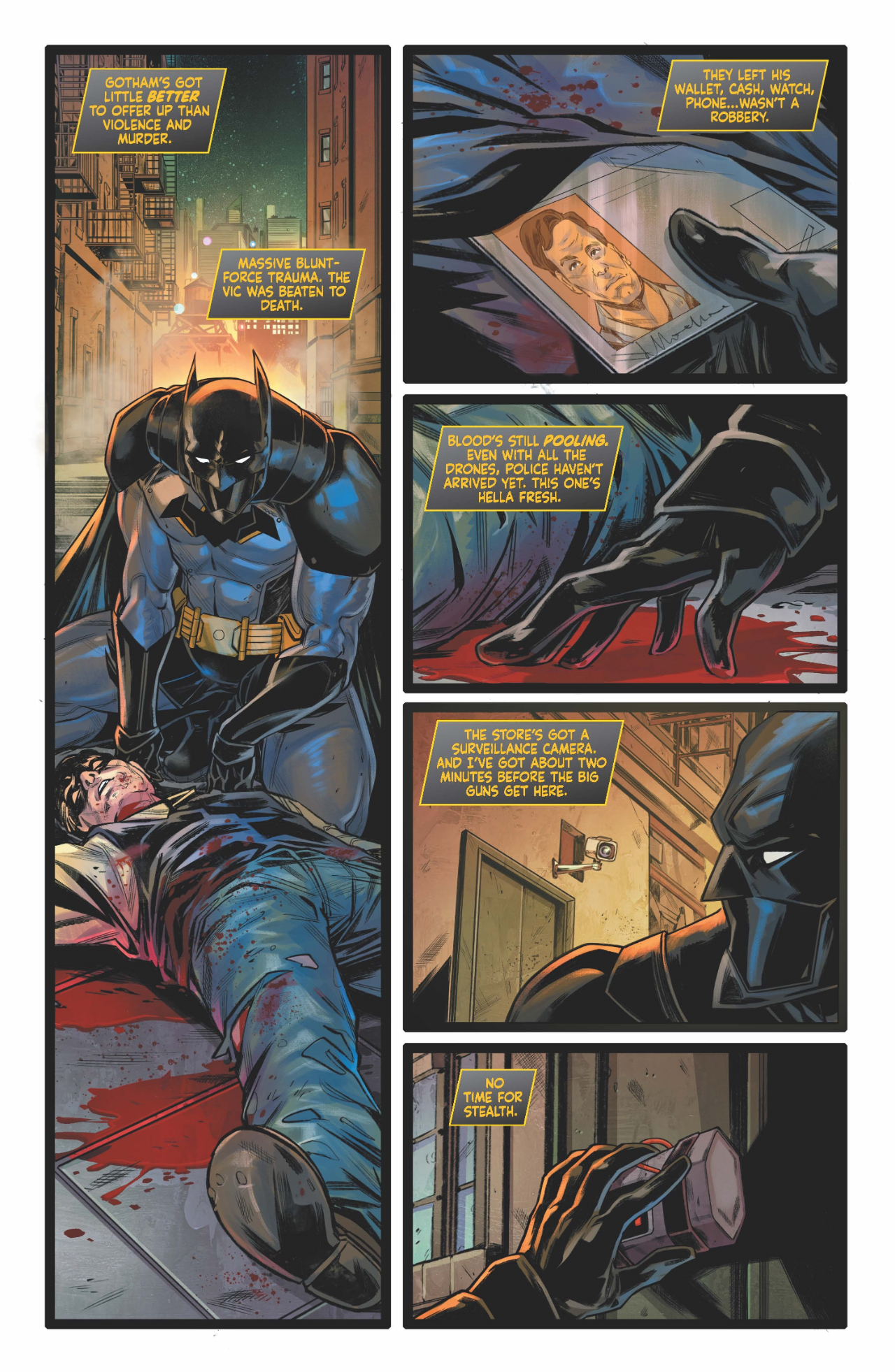
Nrama: There have been other characters who have worn the cape and cowl. What are the challenges of creating a new version of Batman?
Ridley: It wasn't so much the challenge. It was the opportunity with Tim Fox. You make a very good point - to a degree, Batman has had folks out there that he's personally trained, folks out there that have wanted that mantle - the cowl, folks who needed to step in on occasion.
The thing that's always the differentiator is why. What is that narrative? What did they want? What drove them to it? What were their expectations? What were their limitations mentally, physically, emotionally? It really was about being hyper-specific with Tim because so much of his origin story did not exist. And it wasn't either on my end saying, okay well, because this happened, I'm going to have to modify it just to get to where we need to be or conversely going, that happened, but I'm going to ignore that and go my own way - and very rightfully so. I think a lot of fans would go, hey we've been reading this, so this did happen. It's kind of a sharp elbow sometimes when everything gets changed completely.
So, to have Tim have this sort of void, to be able to fill that void, to be able to make his journey, hyper-specific. Some of it happening off the page. A lot of it happening on the page. So much of it happening with his family. A family that has so many secrets, has been around Batman and Bruce so intimately, but in different ways and with a different level of knowledge by all the members of the family. It's just going to allow for a very particular approach to Tim Fox's version of Batman.
I think there are a lot of characters out there that could have been Batman, but for me, I think their motivations were not hyper clear. And I don't want to force change to either the detriment of stories that came before or having to overly modify what was going to come. And this in Tim just allowed for a really particular narrative, which we believe is going to allow for a very particular incarnation of his Batman.
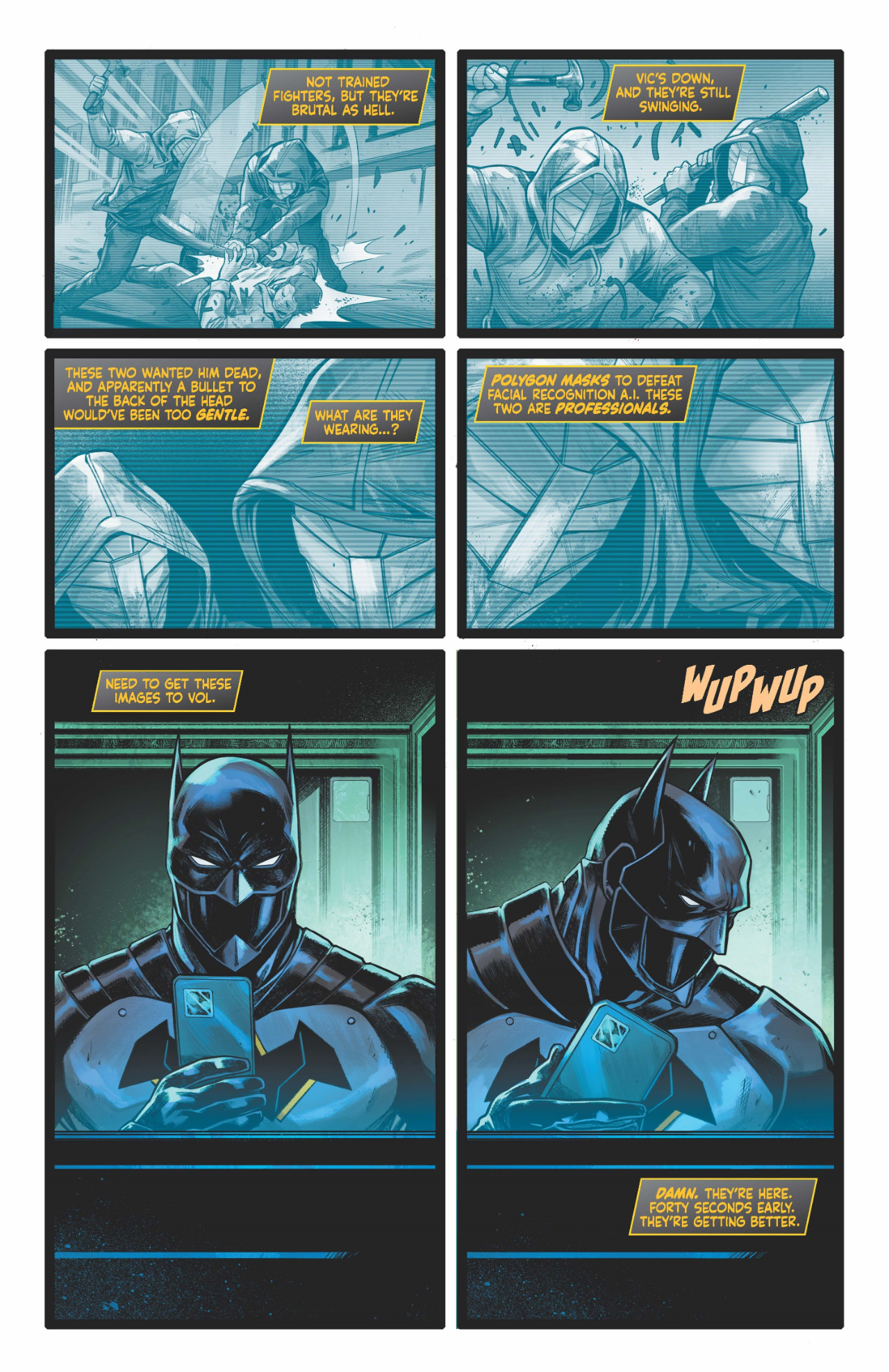
Nrama: What are some of the biggest differences between how Tim Fox and Bruce Wayne approach their roles as Batman?
Ridley: For me, the biggest difference really is family. Everything about Bruce was driven by the loss of his family and on the page, never really being able to attach himself to people, and that need to be Batman, that need to be an Avenger. The first time that they published Batman's origin story it was just as a kid crying on his bed and praying to God saying I will devote the rest of my life to warring. Literally, they use that word 'warring' against crime, and he's driven by all of those things, but always if I could just get my parents back. Every person I save is somebody's father, mother, son, or daughter. It's a hyper-specific drive.
That's made him a very, very lonely man, but one of the most compelling characters in literature - any literature. And the biggest difference is that Tim has his family and that family is always there. He too is driven by family but in a very different way. He's going to have to reconcile much of that in real-time. For me, everything about it is exciting. Everything that it lends to the Batman character is really exciting, but also just as a storyteller, as a person, as a father, as a husband, as a writer who would love to see more fully rendered black families in the wider culture.
Even stories that I'm working on now where it's in those moments, those character-development moments, in those experiential moments, in the moments where the heroes are - you've got to feed that drive. So much of it with Tim is just nexus around family and going forward it's going to be nexus around family, obligation, perspectives, regrets, jealousies, and everything that goes on in a family, in pride, love, and respect.
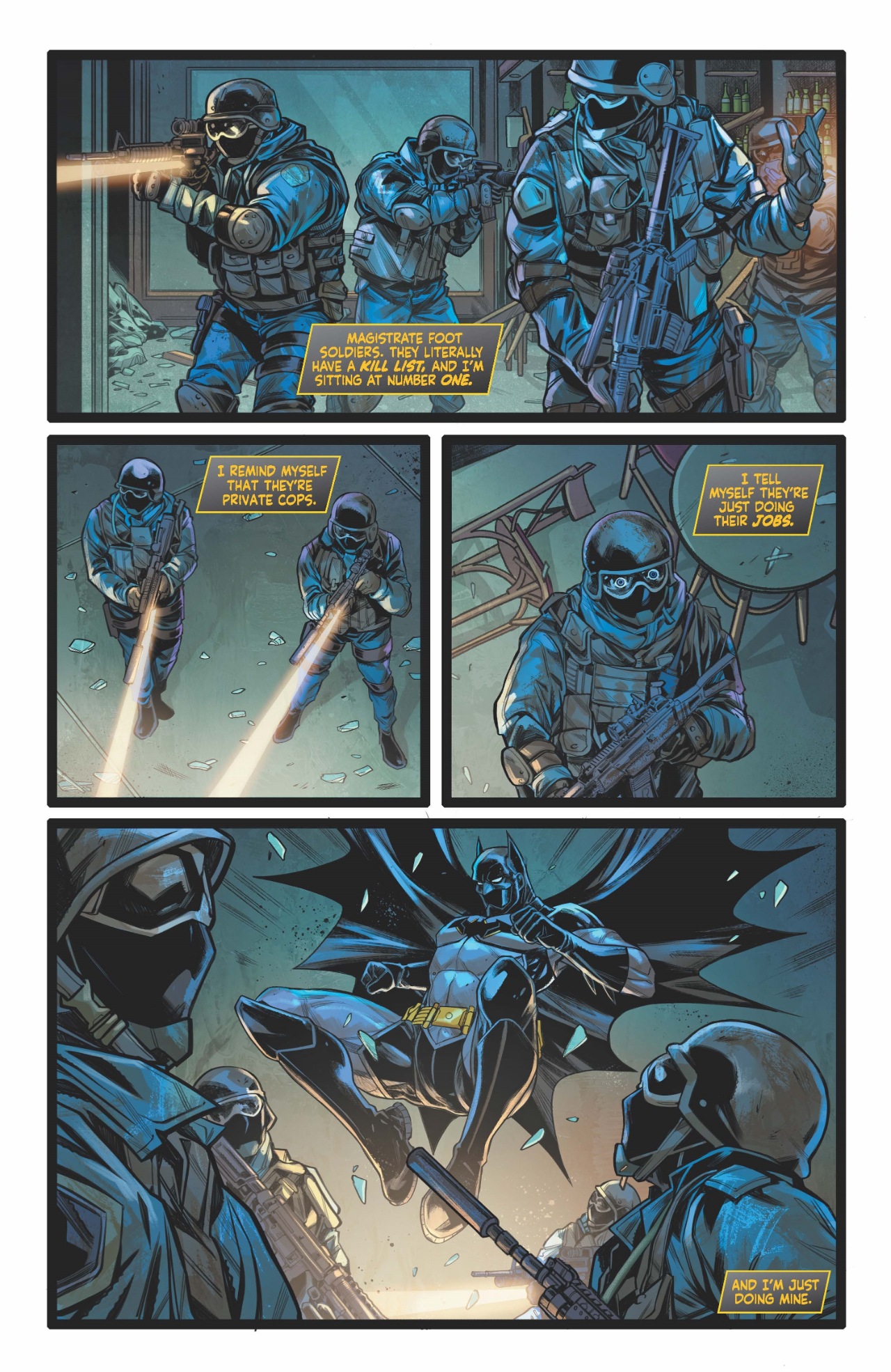
So, that to me is what's going to differentiate these two Batmen in particular, but what excites me is all these things you get to embrace. It doesn't just excite me because, oh here's where it's different. I'm not doing Bruce. I'm doing Tim. Where it excites me is the opportunity then to not just nod at these differences, but really excavate them and really live in those spaces so that when Tim is out doing what he does and throwing a punch. This is what makes him so different. Why his motivators hopefully will matter to the audience because you know where they're coming from. It's not just throwing a punch to throw a punch. It's not just to stop a crime, but even in the 'Future State,' every one of the stories, almost every motivation, not just with Tim or with the stories, the storytelling, it's all nexus around family. For me, where I am in my life, I understand how much of what we do is wrapped up in family.
Nrama: In The History of the DC Universe, you tackled a difficult subject and made it accessible and understandable for all readers. What are some of the themes we can expect to see in The Next Batman?
Ridley: I would say one of the big themes that we want to tackle and deal with is just identity across the board. Certainly, we talk about family, but identity. Identity matters at any age, figuring out who you are, but particularly again for where I am in my life. I think largely not exclusively, so many of these books are targeted towards a younger demographic. And frankly part of doing the Next Batman for a younger demographic that maybe didn't have an entree into comic books or felt like they didn't have a reason to pick up comic books.
A lot of the messaging is going to be for a slightly younger demographic - younger than me, I would say at the very least. And what are the things you want to talk about? Identity, figuring out who you are, figuring out who you are away from other individuals? Do you have a Fox family? That's always been very prominent that now is one of the richest families out there. What does that mean? How does it change how people view them?
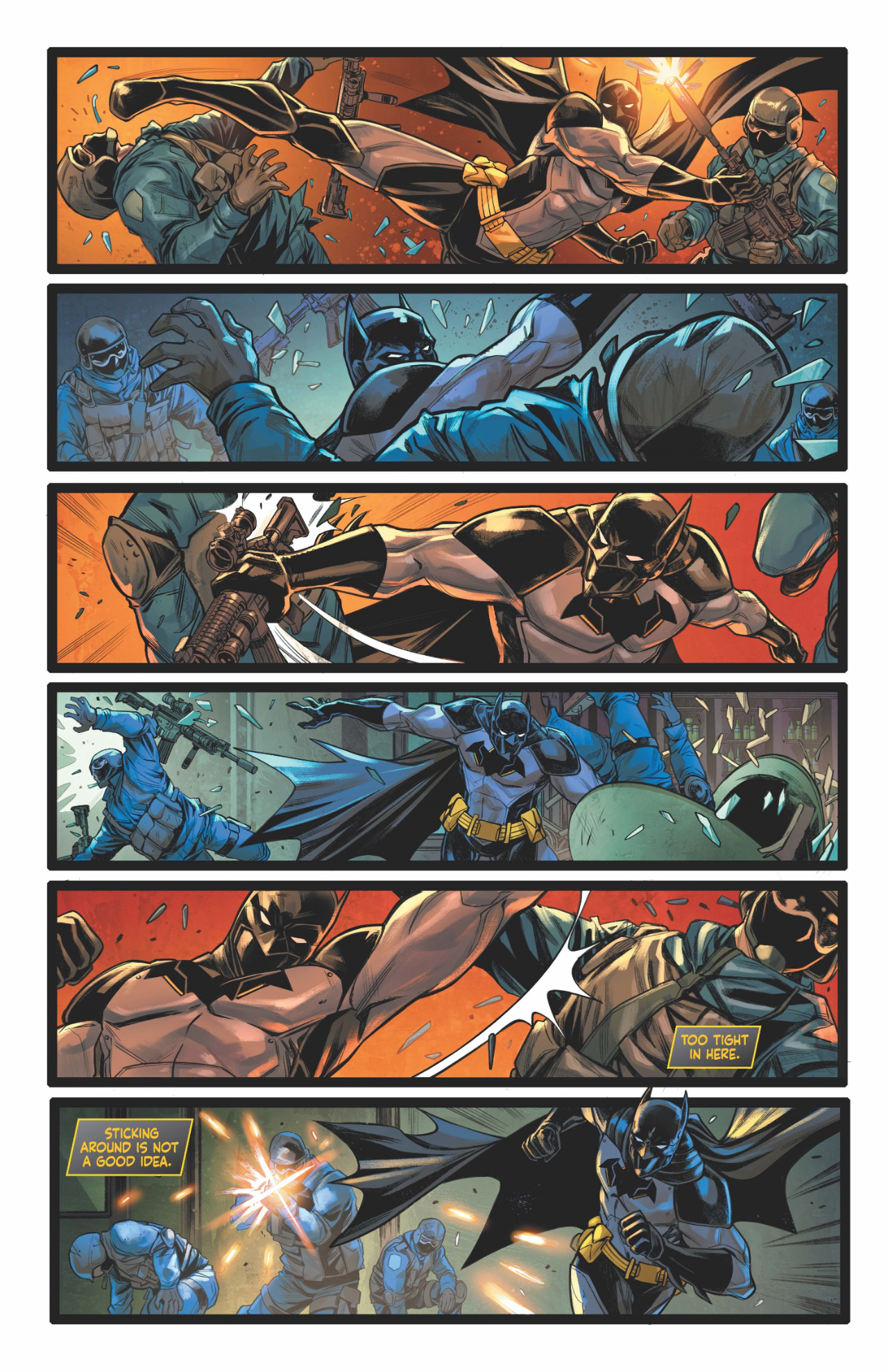
So much of just the whole hero culture is that difference in people when they're not wearing a mask or when they're wearing a mask. Or for Superman his mask, his Clark Kent, and what that's like for the most powerful man in the universe, but they have to subvert himself oftentimes and be a little awkward and be, I put this in quotes, regular and how that affects how people see him and same with Wonder Woman, same as so many of these characters, just living in dualities. That excites me because in my peer world and the people I'm around we live in dualities.
We live in a world that we know. We live within the prevailing culture. There are so many things that are put upon us, we're different at home, and the minute we walk out of our house, how people see us, how people perceive us, how people interact with us? It's very different.
There are so many things that are very exciting to me because they're just baked in. You don't have to accentuate them. You don't have to make a huge deal out of them. Even just the Fox family, a family of color, becoming the richest family on the planet. You don't have to put a highlighter on that and underscore 18 times. There's something very compelling about that and something that is there just in its existence.
So, it's identity for me - perspectives, how people see Tim when he’s under the cowl, when he’s walking around as Tim - a guy who’s been gone for so long. Why was he gone? What did he do? How do people see him? Out of a good-sized family, people in the family are going to view him differently. All of that stuff is there, all that stuff exists. Family is one of the big things, but identity is the other really big pillar that underpins much of Tim Fox's storytelling.
Nrama: Batman is known for his sidekicks. Would you like to see Tim working with some allies?
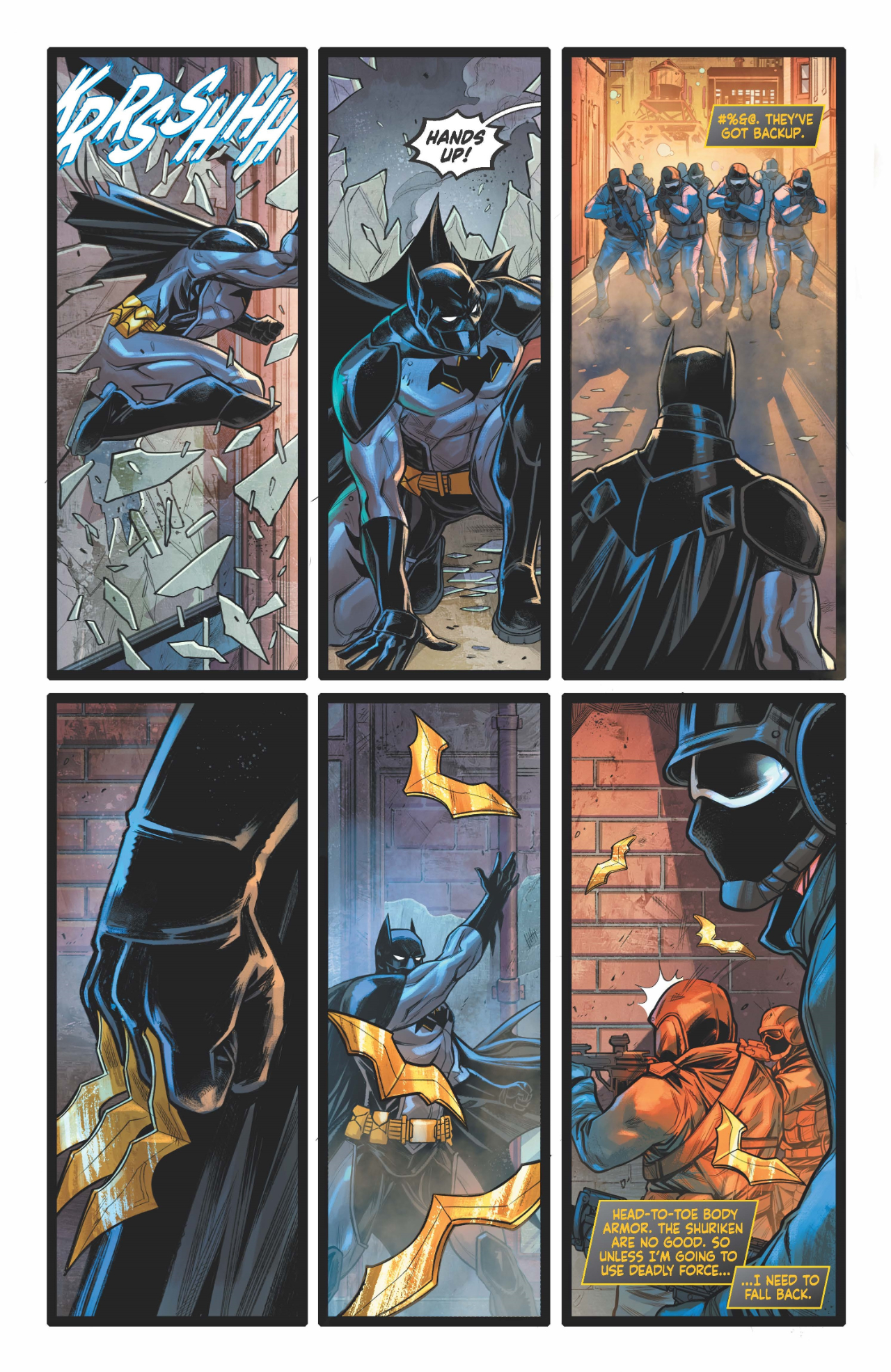
Ridley: Yes, most definitely. I think one of them has been teased already, with some amazing artwork that's coming up in Batman: Black and White. But one of the things that's been really fun for me, and it goes back to when we were talking about working in a new infrastructure, was being able to go to the editorial and administrative and say, 'Oh, you know, what about this character? Can she come on board? Can she be part of this? What about a new version of this character?' People have just been great.
If you can just flashback to when you were a kid, back in the day when Toys R' Us still existed, your parents would go in and go "Okay, you can go pick out three toys. That's it. And they got to be on the $5 shelf," and you just go running around. Honestly, it's just been like that. Picking a few characters, a couple of new ones, a couple of people, as Tim builds his orbit, and that's been really fun.
There are so many characters throughout the DC history who I love and would love to see more of - characters that are around, adding old characters, or a character who has been around in a new environment with a new character and everything changes. So yeah, definitely, Tim is going to have a support structure, Tim is going to have partners, Tim is going to have mentors, it's all going to be in there. I could not be more excited about them.
It'll be interesting to see if people choose to guess, based on some of the other work I've done, if people are going to wait patiently, like for Christmas morning and just open their gifts and see who's inside. But yeah, he's definitely going to have some people in his orbit. As excited as I am about Tim, and I'm hyper-excited about him, it's fun. It's just like when you're young and you form a band, and it's kind of quirky and weird, and you iron out personality differences, but you go out and you play and the crowd starts cheering it's worthwhile. So, I'm looking forward to that.
Nrama: What comics did you read to prepare for Future State: The Next Batman?

Ridley: In all candor, I don't read comic books like I did, up through my mid-30s, so everything. DC's got an amazing library of stuff that they've lent, PDFs going back in the day, going back finding every utterance of Tim, which were not many. More than just the Batman stuff, honestly, it's just where the Fox family showed up, getting as many primers on them as humanly possible. Some of the characters around the edges that I'm bringing in. I was trying to get as much on them as possible.
But there are really interesting rabbit holes that open up because you go back for very specific things, and then there's a character who comes in or drops out. And it's like, "Okay, wait, what has happened to them? Did this arc ever really complete? Did it come to fruition?" And that's the weird thing when you start following stuff. You find a treasure map, and you think, okay I'm going to go find this, and I'm going to excavate this one little incident, and then you can't find it or never got finished. And sometimes it's a little heartbreaking because as a reader, it's like, "Oh, this was interesting." And other times it's like, "Okay, great. Now, if it really doesn't exist, is this something I want to close out? Is it something I want to bring back because it's something I want to talk about?"
I guess to mostly indirectly answer your question, some of it was the more immediate things because I obviously wanted to make sure it lines up, but a lot of it was the tangential things because that's what's exciting to me. And those are the things that then you can make whole and you can finish up ideas that were really interesting, at least to me, but were never finished for whatever reason.
Nrama: I'm impressed that you picked Tim Fox, since the character is a bit obscure, with most of his appearances occurring in the Bronze Age. Did you have fond memories of his '70s storyline or that era of Batman?
Ridley: The sad thing is, my parents were finally, like decades later, just fed up with my comic books sitting back at their house. And they've just been on this for years now – "Alright, we're sending this, ready or not here, all this stuff comes." I've been going through the comics the last year or so. Which ones do I want to really keep, and which ones do I want to get rid of, and now finally, as I become much more of a regular comic book writer, through the comic books that you go back and go, "Ah, wait, did I still have this one? I need this one, do I know their history."
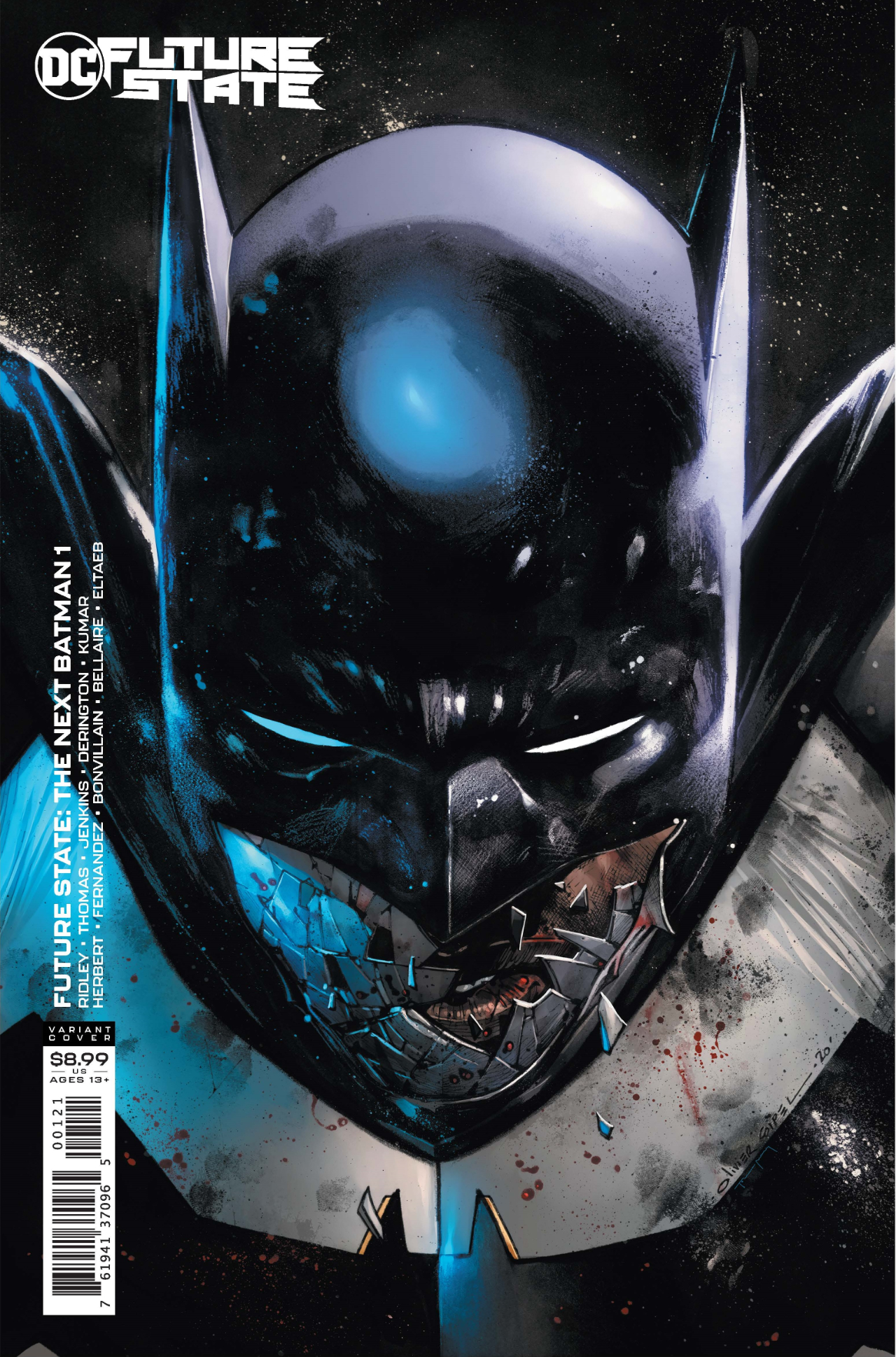
It was just this scramble to find these things that are spread out around my house. The thing for me with Tim more than anything was people at DC are like, "Yeah, no problem, we can get you a PDF of that" and I go, "No, I know I have it somewhere." It was this refusal to admit that I couldn't find or need to find that one particular thing, that one particular comic. The fun part for me, or at least turning it into a little bit of a challenge was just, I've got this comic book that was for years and decades just a very serviceable issue or a couple of serviceable issues, really going back and seeing like, I'm questing now, I'm going to find this thing, I have it, I know it's somewhere and I'm gonna get it.
Some I was able to find, a couple I was not. But that to me was fun. It's been so much fun to have your life truly come full circle. And the things that I loved when I was younger, now it's not just an emotional enjoyment, it was really a connection, a connection to stories that I've read. I had so many comic books, I certainly don't remember the exact day that I went to the comic book shop, but I remember when I was younger going, and my mom taking me and having a big bag of pull comics that were put in the bag. That's been really enjoyable. So, I would say more than anything, it's not just finding these stories, or whether they were really good stories or just serviceable stories, but really that sense of memory, and even the muscle memory of reading these comic books, or seeing old ads from way back in the day. That's what's been most enjoyable.
Nrama: You have stories coming up next month from two beloved comic book characters in the form of Batman and Marvel's Wolverine. What are some of the advantages and disadvantages of writing such favorite characters?
Ridley: The disadvantage is that they're some of the most beloved characters in all of literature. Stepping into these spaces, I can't lie, there's a sense of the history of stepping into. So many writers have executed it so well, in so many spaces on the page, on the small screen, and on the big screen.
I was just watching during this pandemic, with our sons, they hadn't seen - I want to be careful, because I know I'm on DCs dime - but you know, they hadn't seen Logan. They're like, "Oh, Daddy, are you writing that?" And I'm like, "Yeah, Daddy is writing that, let's take a look," and they love these characters, they love the lore of it. They haven't been big readers, but that's part of the excitement, to be able to say to them you've got to read Batman, you've got to read Superman, you've got to read all these characters.
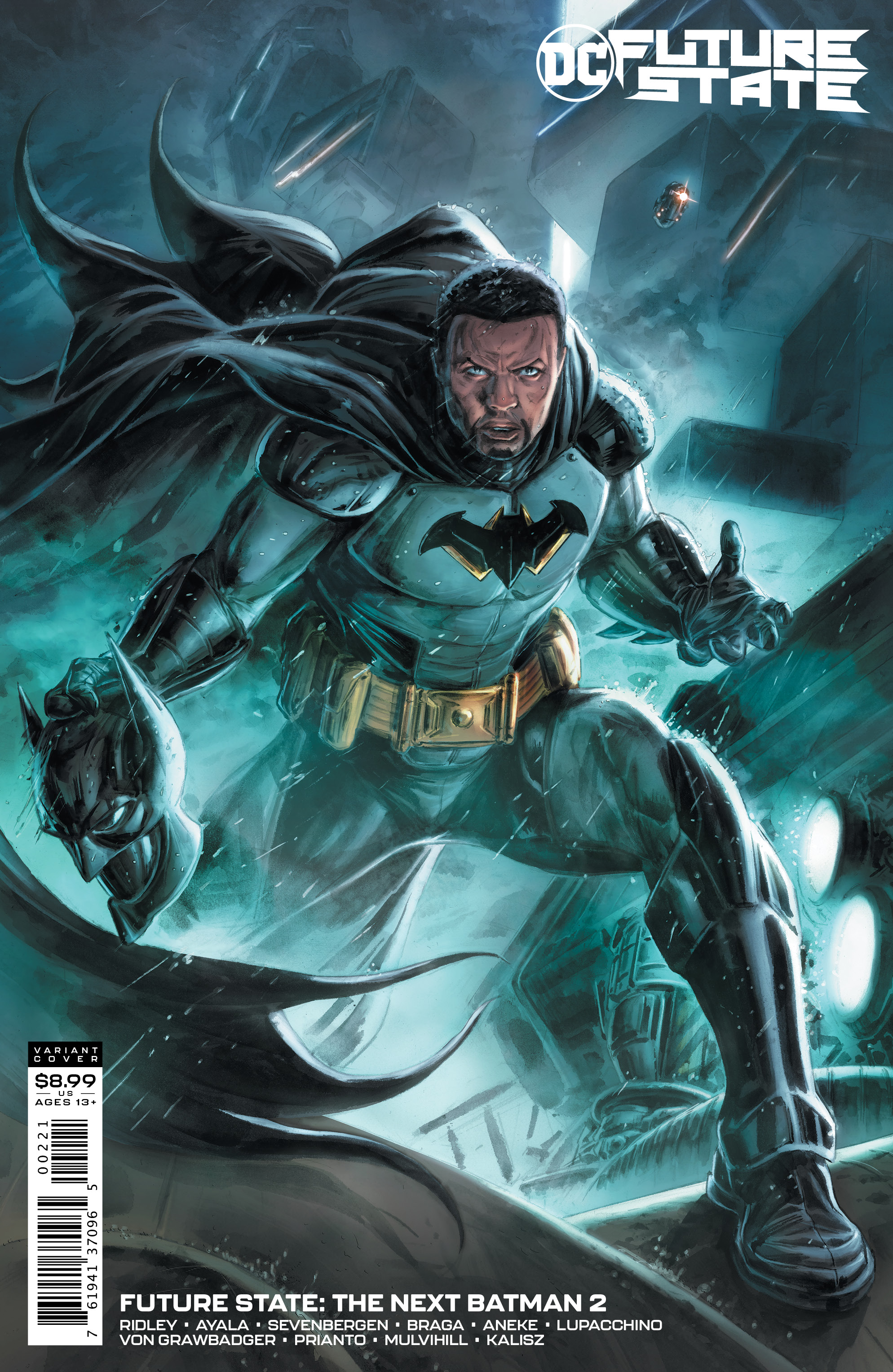
But you know that they're beloved for a reason, you know that you're coming into a space where you get a bit of a sandbox, but that sandbox is much smaller for all kinds of reasons. Writing a Batman: Black and White short story, that's like 8 pages, maybe 10 pages, I don't remember exactly - even if that is not Bruce as Batman, you've got to stick the landing. It's daunting, it's challenging, it drives a bit of anxiety, but the upside of it is there's a level of awareness and interest that, as much as people liked the American Way, liked it enough that you get to do an iteration of that every decade, which has its own kind of kind of cachet and cool.
People are already talking about some of these short stories going in anthologies with some of the best writers, they're talking about that on the level that they just wouldn't if I was just writing a story. So, everything comes with it, when you step on a platform in a public square, you get everything. You get a prominence, you get to stand three feet taller, but you've got the world passing by, and they're going to comment the way they're going to comment, and they're going to have the opinions. But when you step on the box, you know that's what you're going to get. But it's been terrific, and it's kind of weird that I've become the writer of minimal palettes, doing a black, white and red, doing a black and white, doing a Superman red and blue. It may be the extent of my abilities is just working in semi-monochromatic spaces. We'll see.
Nrama: What legacy are you hoping to impart on the Batman mythos after the story?
Ridley: If everything works very correctly, I think more than anything else, really understanding the Fox family. As I've said, they've been incredibly integrated into the Batman universe. Certainly, with Lucius, when a character goes from the page to the screen, he's become indelible, and what he represents as a friend, as a partner, as a father figure for Bruce, as a character that the world sees, and as a remarkable man who has the capacity to run one of the largest companies in America. That's pretty remarkable in and of itself. Luke has risen to a particular level on the page, and he hasn't gone beyond that yet. Tanya, as I said before, she never, as far as I know, never stated what her job was, what her role was. Same with the sisters, and certainly with Tim.
So, to me, the legacy would be to leave a wholly rendered family, and that any of these characters can then move on and inhabit other spaces in the DC Universe, whether they're heroes, whether they're just prominent characters that can be in the legal profession, business, finance, and all the other things that really underpin what's going on with Gotham, what's going on in the DC Universe, and who these characters are, and really be added to the storytelling. If 15 years from now, every one of the characters within the Fox family was a strong, durable, well known, well understood, individual character, that when they showed up, they had history, and a history with specific narrative events - to me, that is the legacy that I would love to leave.
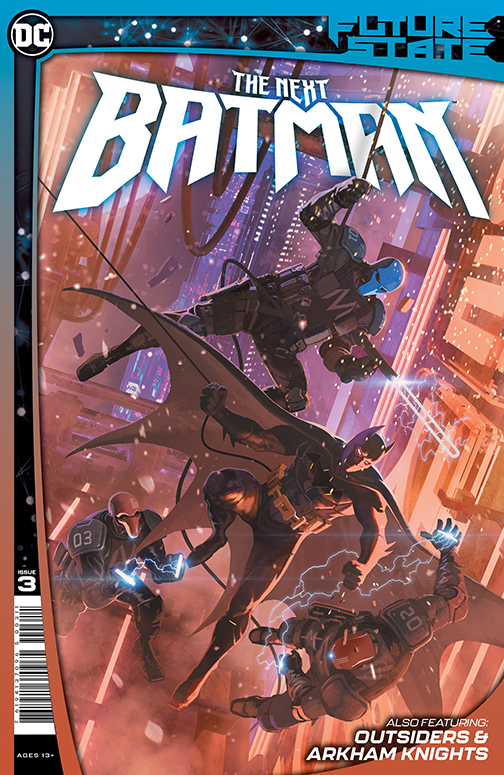
Nrama: It feels as if there is a line drawn in the first two issues between the police and the Magistrate. Law enforcement has understandably been under the microscope recently. Because this has been in the works for quite some time, did current events ever affect the story, or cause elements to be tweaked or changed regarding the Magistrate, the police, and their relationship to each other?
Ridley: That's a really good question. I'm going to speak on my end with the books that I'm handling. I don't want to speak for anybody else with their books or their circumstances. Unfortunately, just as for pretty much every black person in America, this moment that we're going through right now - it's hyper realized, it's very raw, and while the wider culture and certainly the prevailing culture is very aware of it, this isn't new for us.
Going back to my runs on American Crime, where we started that show you in the wake of Trayvon Martin, and then while the first season was on - we got Ferguson, we have Freddie Gray, and what's going on in Baltimore. So, to me, it wasn't adjusting one way or the other. To me, when I know going into it, having a young black man who is going to be an extension of law enforcement in this world, again you don't have to hyper-realizing of that, they're going to be people who just recognize that the storytelling has the capacity to be very politicized.
But with Future State: The Next Batman, in particular, it's going to a whole other level because there are elements within that story, when you're talking about the militarization of any kind of representation of law enforcement, whether it's police officers themselves, whether it's extra-legal organizations, those are things that people have been grappling with for a long time. So, it wasn't about modifying it - this is going to be part of the storytelling. For me, recognizing that these are Bat-titles - if this were the American Way, if this were The Other History, yeah, I'm going to modulate the politics, I'm going to modulate those perspectives in a different way.
I know what Batman represents in terms of individuals who want to just have a good read. But I know again that Batman is always dealing with crime, dealing with impoverished areas, dealing with street-level crime, and dealing with systemic crime. It's always been there. But yes, you make that character black, you talk about a militarized police force, you talk about policing, and it becomes more political.
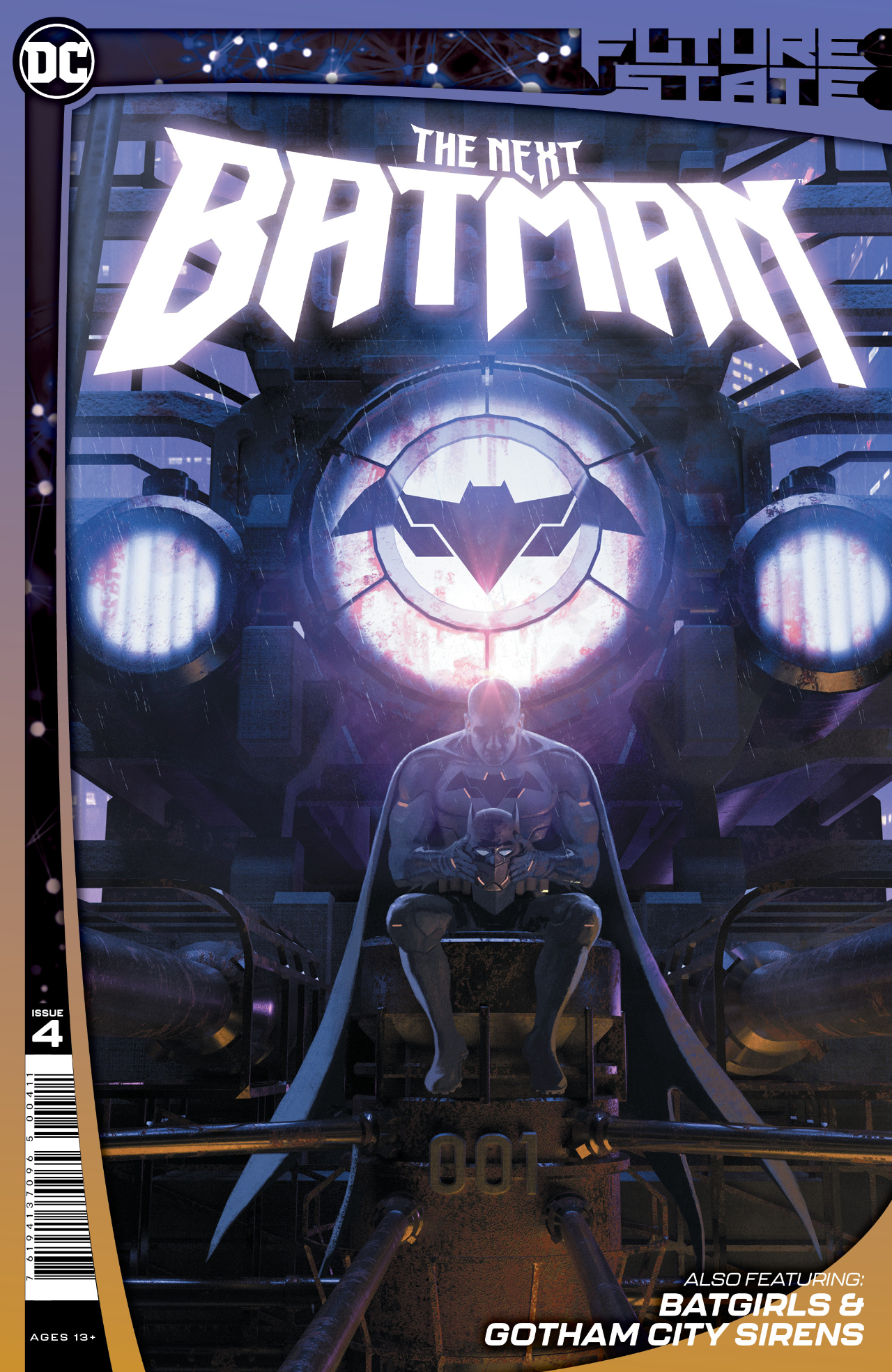
But in those first two issues, it's very ground level, it's very fundamental. It goes back to things that feel like there's real jeopardy. When you have people who are not bad characters, who are interacting with the police, and anything can happen. Again, that excites me, not just as a black man who's telling stories, but as someone who's going to write just even if this were it for Tim Fox in four issues. Things that can happen that have real consequences, real loss of life, real genuine stakes, that's exciting as a storyteller.
Before you start to add in, or worry about, or be concerned about, how are people going to take this on a political level - it's always been there. What people bring to it, they bring to it and that I can't do anything about, but I can certainly embrace all of those things that I hope would make this story feel a little more grounded, a little more fundamental, and a little more like a guy who's just kicking off his career as a hero.
You can't start where Bruce is ending. Even if every 10 years in DC time represented one year in Batman's life, he's been doing it for eight or 10 years. You know, he's exceptional at this point. So, more than anything, a young man starting off. There are folks out there, a police officer with a gun who doesn't understand who this new Batman is, he doesn't know what race he is under the cowl, he just knows that I don't know this guy. It's going to be a fraught interaction before you start adding in things like race or being reflective of what's going on in the real world.
Nrama: What can you tease about Tim's dynamic with the rest of the Fox family?
Ridley: Oh, nothing. I can't tease it. It would give far too much away. Other than to say it's complicated. And it's complicated, he's got a good size family - two sisters, Mom and Dad, and a brother, obviously. So, it's complicated within the complications. But 'it's complicated' is about all I can tease.
Nrama: To wrap, Batman has existed for over 80 years, and still has such an important place in pop culture after all this time. Why do you think that Batman still matters?
Ridley: I think it was just yesterday, we were talking about this - because I think Batman is the character that in a world of wish fulfillment, that most people could actually see themselves becoming. And yes, I don't think most of us are going to get in that kind of hyper shape and travel the world and learn every martial art. But you can wish, and hope, and blow your birthday candles year after year, and you're not going to become Superman, you're not going to become Wonder Woman, and you're not going to become the Flash. But that feeling that if I just modified myself some, and I'm not talking about physically, I could go out and do really great things. And I can take the things that drive me personally, hopefully not a loss like Bruce's, but my environment, my peers, my family, the benefits that I have in life, or the things that I've been denied in life.
Bruce was denied the most basic thing, a mother and father who cared about him. And all the money in the world doesn't replace that, all the stature in the world doesn't replace that. There were things that he rejected. The millionaire/billionaire lifestyle - he actively rejected that and made it a prop in his life so that he could go out and do other better things.
So, I think for everybody, you look at Batman, and yeah you think I actually could go to the gym, I could do push-ups. And by the way, you could, and you could learn martial arts, and you could become a law enforcement officer, but you could also become a nurse, you could become a doctor, you could become an engineer who's focused on building a better tomorrow, literally and figuratively.
So, I think Batman endures more than anything else because he's one of the most human of the heroes. A well-placed bullet could stop him. He's had his back broken and has to fight back from that. And yes, we've had these heroes where they've gone through things. Yes, Superman died, but there's just even something in Batman where I can come back from this. And even the people around him, Barbara Gordon, and what happened to her. Jim Gordon is a guy, and a husband, and a father.
There's something so fundamental about Batman, and the Bat-universe, and his relationships, that I think, yes, it's dialed up a bit - a good bit, but that people can relate to, and people can see themselves in. You can turn around and then say Superman endures and the Flash endures. Yes, they all endure, they're great characters, but to your question, why do you think Batman still matters? Because it just represents what we can do if we make that choice to really get involved and to really do something.
It's baked into our DNA, and we can try to deny it, and we can be hyper-politicized and all that, but there's just that desire so many times to wish I'd done something, I think I can do something, I want to do something. Whatever circumstances I arrived in, that doesn't need to define me, I can go out and define myself. That's all Batman. And I think that's why he matters so much and something for us in so many ways.
With The Next Batman, that's something we want to embrace. I think the great thing about The Next Batman is it's not being opposite Bruce Wayne, or different from Bruce Wayne, or denying Bruce Wayne, it's embracing all those things that have made Bruce and Batman one of the most enduring characters in literature and saying what's next for that lineage. It's not different Batman, it's not anti-Batman, it's next. And next is building on the past and really making it urgent and durable in the moment and for tomorrow.
Will John Ridley’s the Next Batman take a place among the best Batman stories of all time?
Kat has been working in the comic book industry as a critic for over a decade with her YouTube channel, Comic Uno. She’s been writing for Newsarama since 2017 and also currently writes for DC Comics’ DC Universe - bylines include IGN, Fandom, and TV Guide. She writes her own comics with her titles Like Father, Like Daughter and They Call Her…The Dancer. Calamia has a Bachelor’s degree in Communications and minor in Journalism through Marymount Manhattan and a MFA in Writing and Producing Television from LIU Brooklyn.
